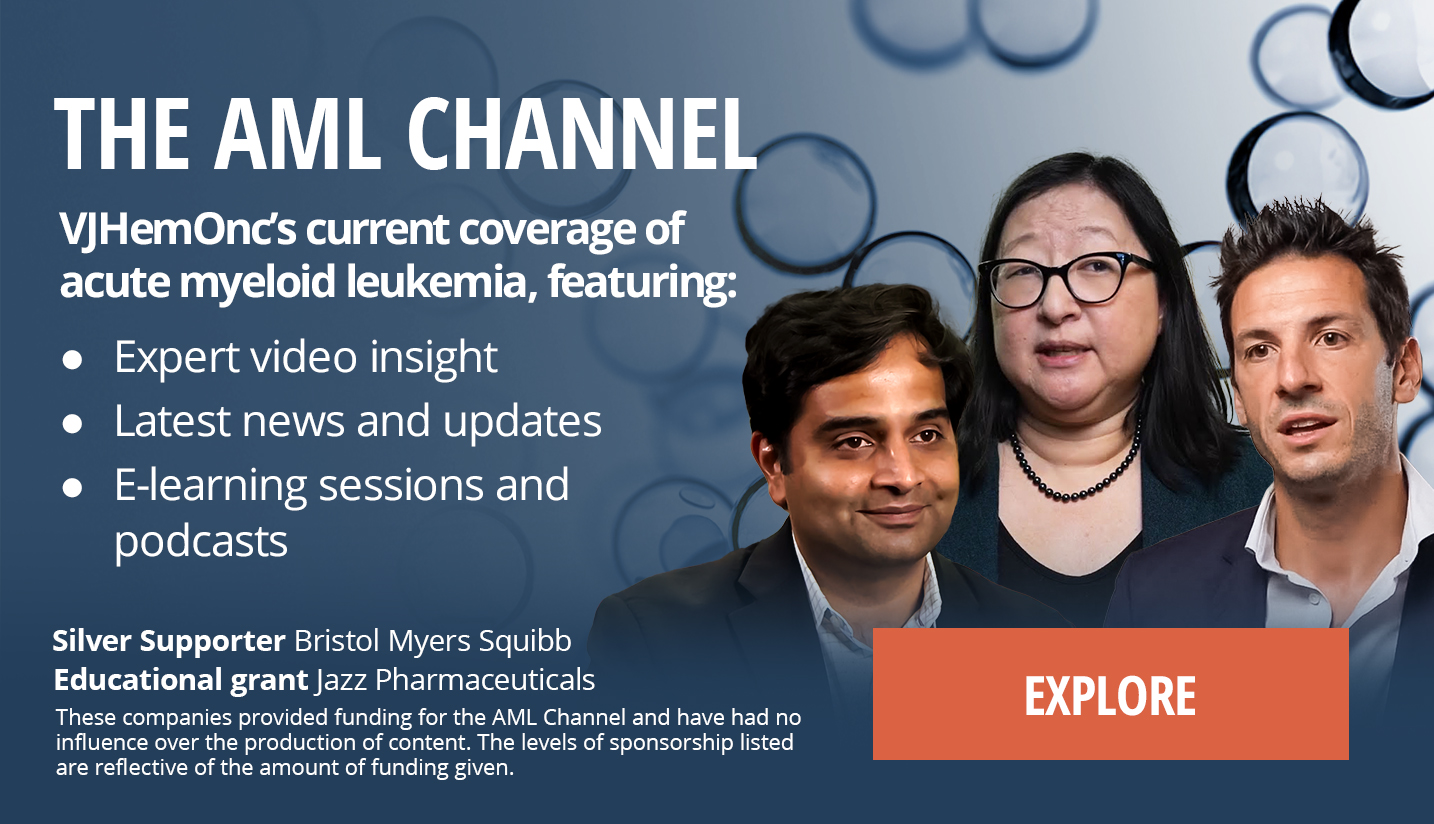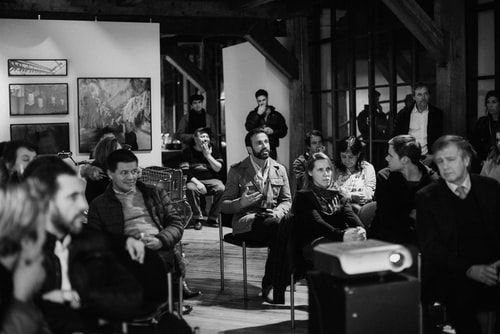We conducted this single institutional first-in-human trial where we used donor-derived allogeneic gamma-delta T-cells, expanded them ex vivo and using zoledronic acid as well as antigen-presenting cells to expand the number of gamma-delta T-cells. And we infused these to patients who are high risk for relapse after allogeneic transplantation. These are the patients who have adverse risk AML based on ELN 2022 classification, and those who are receiving reduced intensity conditioning transplant, meaning like older patients, unfit patients...
We conducted this single institutional first-in-human trial where we used donor-derived allogeneic gamma-delta T-cells, expanded them ex vivo and using zoledronic acid as well as antigen-presenting cells to expand the number of gamma-delta T-cells. And we infused these to patients who are high risk for relapse after allogeneic transplantation. These are the patients who have adverse risk AML based on ELN 2022 classification, and those who are receiving reduced intensity conditioning transplant, meaning like older patients, unfit patients. And this was for the purpose to infuse gamma delta T-cells in order to reduce the risk of relapse following allogeneic transplant.
A number of these patients were also MRD positive, close to 60%, prior to transplantation. We had one-third of the patients having very high risk TP53 mutation, MRD positive pre-transplant that is expected to be having relapse risk 65% or even higher in some studies.
So this was a very well-tolerated product for post-transplant infusion and we studied up to 100 million cells per kilogram dose. It was quite safe and we didn’t see any graft-versus-host disease, cytokine release syndrome, or any neurotoxicity. We could have used a higher dose but our study allowed up to 100 million cells per kilogram; maybe in future studies, a higher dose or subsequent infusion can be studied. This was only a single dose that we infused to patients between day 60 to 100 after transplantation.
And we also report on promising efficacy results with only two relapses observed among 12 patients with a relapse rate of 17% with a median follow-up of 11 months for these high-risk patients. And a large majority of the patients, 85% who are MRD positive, are in ongoing complete remission, that is MRD negative following infusion, including TP53 positive patients. And we also had patients, three of them, who had TP53 mutation early post-transplantation at day plus 30. And after infusion of gamma delta T-cells, two of these patients cleared the MRD and stayed in MRD negative complete remission as of now. So with one mortality case we observed, and that was one of the patients who relapsed. And therefore, we believe this is a promising strategy to explore in a Phase II study going forward.
This transcript is AI-generated. While we strive for accuracy, please verify this copy with the video.















